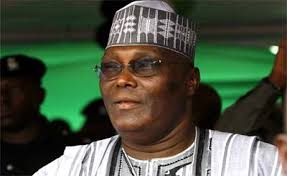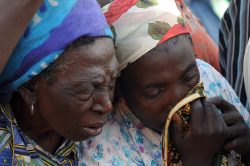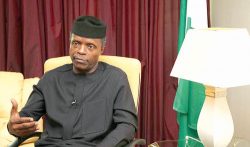By Sufuyan Ojeifo
Recently, I read the highly insightful and incisive intervention by an anonymous author on the rigged structure of Nigeria and the abysmal level of distrust in the interactions and relationships among the ethnic nationalities that comprise our nation. A former minister of aviation, Chief Femi Fani-Kayode (FFK) claimed a friend of his sent the intervention to him, which he decided to publish in Vanguard newspaper in April 2017.
The piece, coupled with emerging political scenario ahead of 2019, has greatly unsettled me, prompting sundry questions. For instance, how do we define and relate with our distinctive individualities within the complex mix of plural ethnic identities in the Nigerian nation-state without losing our sense of nationalism, that obligatory and patriotic commitment to a united nationhood governed by a central government, to which we are expected to have equal access and share?
How do we continue to show fidelity to a nation-state that has, over the years, been brazenly manipulated and rendered prostrate in lopsided obligation to the interests of an ethnic nationality that claims superiority over us? How come the group enjoys preferential treatment by successive governments over other component ethnicities without being assailed by the imperative of equity and justice as well as the need for restructuring in order to balance out the scale of socio-economic and political values in the interest of the common good?
Can any right-thinking Nigerian, having been aware of the historical facts contained in the intervention titled: “SEVEN-FOLD YOKE AND THE CABAL THAT OWNS NIGERIA”, continue to be at ease with the system? The Hausa-Fulani cabal was justifiably indicted in the programmatic political manipulation and other forms of exploitation of our nation. The cabal has saddled the rest of us, in the submissions of the anonymous author, with economic, religious, cultural, administrative, diplomatic, and military/security yokes.
Should we resign to fate, watch the domination continue and groan under the yokes? Certainly, this cannot be an option. We must take our destiny in our hands and resolve, as a matter of urgency, to commit ourselves to a struggle to liberate our generation from the shackles of Hausa-Fulani hegemony. We must begin to strategically and genuinely engage the platform of politics- the most critical mechanics of control of the political economy- to decide how to cohabit, henceforth, with the Hausa-Fulani stock in the Nigerian federation.
We must engage one another to decide on and agree to what I consider as the irreducible minimum or basic requirements of ethnic relationships and interactions that characterise the basis of an equitable nationhood. I refer to the 2014 National Conference recommendations on true federalism as a guide; otherwise, the 2019 presidential election offers an opportunity for the rest of us to deliberately employ the enterprise of dismantling the oppressive structure which the anachronistic, yet influential Hausa-Fulani hegemony typifies. Progressive nation-states run on the wheels of equity and truth. But unfortunately, Nigeria is run on the wheels of ethnic jingoism, religious chauvinism and rabid antediluvian disdain for our collective human otherness by the Hausa-Fulani cabal.
As things are today, the rest of us have a duty to help preserve Nigeria to live in assured peace as long as the Hausa-Fulani ethnic nationality and the cabal that foist their essence and relevance on the politics of the country are ready to commit themselves to the same credo. They must willingly come down from their high horse in prostrate surrender to true federalism as would be agreed to by the majority of the regional entities.
This brings to the fore the issue of negotiating and renegotiating our nationhood through restructuring. Our nation cannot continue to perennially run the same way and expect to get different results. Those who are opposed to the idea of restructuring have deliberately chosen to skew what should have been a simple meaning of restructuring into a veritable bugaboo that is synonymous with the dismantling or dismemberment of our nation.
Far from dismemberment! Restructuring, as a process, is a panacea for the ancient fraud, bazaar and injustice that have afflicted Nigeria under the suzerainty of provincial leaders who have, over the years, masqueraded as our “Salvation Army.” To reverse the trend and help to redirect Nigeria on the path of rectitude and genuine nationhood, the rest of us must sift the grains from the chaffs, this time round. Having agreed to equity in presidential power sharing, in which case it is decided that power should reside in the north for another four-year term until 2023, it should not be the exclusive preserve of the Hausa-Fulani cabal to choose for us who should be our president as it has historically done.
It did so with the election of Obasanjo in 1999. Vice president Goodluck Jonathan chanced on power following the death of his boss, President Umaru Yar’Adua. The cabal worked against his re-election in 2015 in support of its own: Buhari. Now that Buhari’s presidency has turned out a monumental embarrassment to the hegemony and the entire nation, it is time the rest of us took it upon ourselves to choose a president for Nigeria from the Hausa-Fulani stock who will serve the interest of our nation. No more pandering to its whims and caprices.
And from the array of Hausa-Fulani presidential aspirants so far, it is not difficult to zero in on an aspirant that has the requisite qualifications and dispositions that can readily engender a sentimental pan-Nigerian support, the kind that the late General Musa Yar’Adua, a detribalised Nigerian political leader of repute, enjoyed. Former vice president, Alhaji Atiku Abubakar, a detribalised politician, who is, incidentally, Yar’Adua’s political follower, presents a most enticing option, among a microscopic few of such detribalised persons in the north, and that makes him an heir of sorts to the Yar’Adua political dynasty. But unfortunately, the cabal is ill at ease with him becoming president because of his perceived independent-mindedness, willpower and courage to chart populist paths that are irritating to the cabal.
With his advocacy and ownership of the restructuring agenda, he has defined one of the issues that he intends to espouse once he gets in the saddle. The gamut of other innovative governance ideas will naturally flow from the faithful implementation of the restructuring agenda on short, medium and long term bases to rebuild Nigeria. The cabal is not comfortable with restructuring. Little wonder no other aspirant from the north has identified with the idea of restructuring in the manner Atiku has emblazoned it on his forehead.
For instance, Sule Lamido, Hassan Dankwambo, Ibrahim Shekarau, Ahmed Makarfi, and Rabiu Kwankwanso, among others, are not known to have espoused or owned any agenda. Even the incumbent president, Buhari, is now a sport, having rubbished what passed for his own agenda: the anti-corruption war, on the altar of selectiveness. The presidency should no longer be gifted to the unprepared. Aspirants’ guiding, abiding and driving philosophies must be evident and clearly defined. There must be an organic economic blueprint capable of taking the nation out of the woods. Atiku is steps ahead of them all in these regards.
Besides the idea of restructuring, which is a unique selling point of his aspiration, is his affable disposition to Nigeria’s plural ethnic diversities; whereas, the tragedy of northern leadership is the emblematic provincial nature of presidents from that region. Only Atiku has shown clear indications of his cosmopolitan nature-having critical connections with the south of the country, for instance, through conjugal relationships, as well as having global worldviews and international business relationships and connections that would conduce to inflow of foreign investments and growth of the national economy.
We should be able to extract a commitment of a single term from Atiku who is 71. Craving the institution of a lasting legacy, he can within four years, calling on his experience in government, pursue his restructuring agenda, achieve true federalism, shear the centre of its enormous powers and render it unattractive by 2023. In order to consolidate, he will do well to be instrumental to power shift to a younger element in the south in 2023. This is my view about the possibility and imperativeness of taking our nation back from the so-called Hausa-Fulani cabal.























Leave a comment